The photographs on the following pages are part of the collection of the National Child Labor Committee (NCLC) and are attributed to Lewis W. Hine.

They show children working indoors in a variety of jobs. Another set of photographs on pages 26–29 captures children working outdoors. Do any of the jobs look like something you would enjoy doing? Which of them looks the least appealing?
Vance, 15 years old, a trapper boy, West Virginia coal mine. He has trapped for several years. He is paid 75 cents a day for 10 hours of work. All he does is open and shut this door. Most of the time he sits here idle, waiting for the cars to come. On account of the intense darkness in the mine, the [writing] on the door was not visible until the plate was developed. September 1908.
Boy taking boards away from “double cut-off” machine (a suggestive name!), Indiana Manufacturing Co., Peru, Indiana. October 1908.
Spinner, Whitnel Cotton Manufacturing Co., Whitnel, North Carolina. She was 51 inches high. Had been in mill one year. Some work at night. Runs 4 sides [rows of the machines], 48 cents a day. When asked how old she was, she hesitated, then said, “I don't remember.” Then she confidentially added, “I’m not old enough to work, but I do just the same.” Out of 50 employees, 10 children were about her size. December 1908.
This story is from the July/August 2017 edition of Cobblestone American History Magazine for Kids.
Start your 7-day Magzter GOLD free trial to access thousands of curated premium stories, and 9,000+ magazines and newspapers.
Already a subscriber ? Sign In
This story is from the July/August 2017 edition of Cobblestone American History Magazine for Kids.
Start your 7-day Magzter GOLD free trial to access thousands of curated premium stories, and 9,000+ magazines and newspapers.
Already a subscriber? Sign In
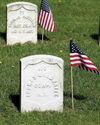
Putting the Pieces Together
Americans needed to begin to put the past behind them, come together, and plan for the future in the spring of 1865. But Abraham Lincoln, the man best equipped to lead them and who had hoped to restore the country as smoothly and peacefully as possible, had been assassinated.

LAST SHOTS
The last Confederate forces in the Civil War didn’t surrender in the spring of 1865 or on a battlefield.
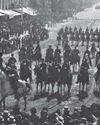
AND IN OTHER 1865 NEWS
A group of African Americans stop at the White House’s annual public reception on January 1, where they shake hands with President Abraham Lincoln.
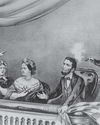
A Plot to Kill President the
For several months, actor John Wilkes Booth’s band of conspirators had plotted to capture President Abraham Lincoln and hold him hostage in exchange for Confederate prisoners.
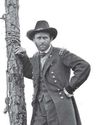
Let the Thing Be Pressed
In June 1864, Union Lieutenant General Ulysses S. Grant began a nearly 10-month campaign in Virginia.
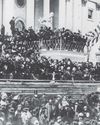
HEALING THE NATION
President Abraham Lincoln took the oath of office for the second time on March 4, 1865.

A Helping Hand
The spring season is hard in any agricultural society. Plants and animals are too small to eat.
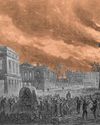
WAR SHERMAN-STYLE
As far as Union Major General William T. Sherman was concerned, the Civil War had gone on long enough.

PEACE TALKS
The fall of Fort Fisher made clear that the Confederacy’s days were numbered. Southerners were tired and hungry.
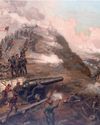
FORT FISHER'S FALL
Outnumbered Confederate soldiers inside Fort Fisher were unable to withstand the approach of Union troops by land and the constant Union naval bombardment from the sea.